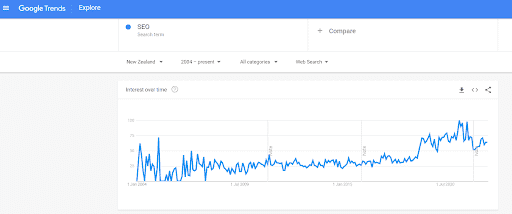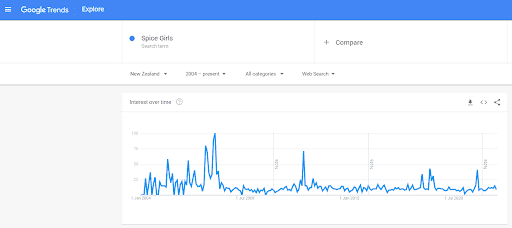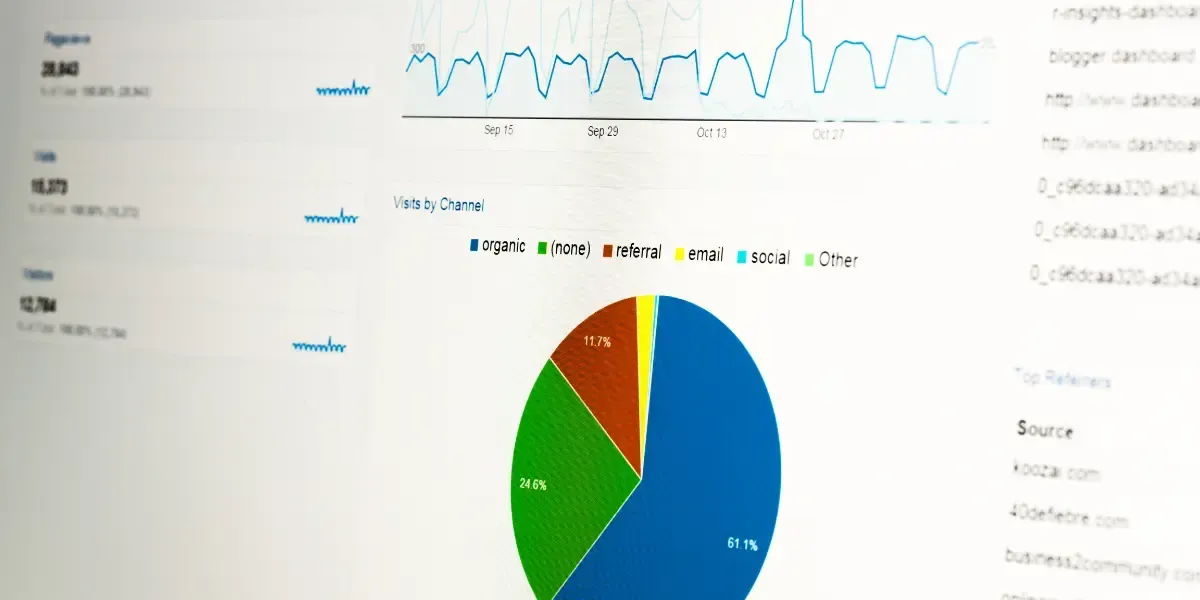Is SEO Dead

In 2022, many internet users queried whether search engine optimisation or SEO was dead.
Contents
- People Are Still Searching For It
- It’s Changing, Not Dying
- Enjoy a High Return On Investment (ROI)
- Receive Targeted Traffic
- Enjoy a Competitive Advantager
- Which SEO Strategies Are Dead?
- Let Clickthrough Assist With Your SEO Needs
Listen to this article
After all, SEO has been around in various forms since 1991, and all good things must come to an end. But does that include SEO? Most digital experts would agree that SEO is alive and well, and here’s why.
People Are Still Searching For It
If something were to lose its value or popularity, Google Trends would alert us to it. Google Trends is a website for analysing the most popular search queries in multiple regions and languages. In New Zealand, the search term ‘SEO’ has been steadily increasing since 2004.
The graph numbers represent its interest relative to the highest point – 100. The value of 100 reflects the peak popularity for a term, while 50 means the search word is half as popular for that term.
As you can see, interest in SEO hasn’t been significantly waning since Google Trends started capturing keyword data. Instead, it has continued to climb. People still understand that SEO is crucial for their presence and success in the digital space.

Source: Google Trends
Now, let’s compare those results to the Spice Girls, who reached the peak of their fame in the late 1990s but broke up in 2001.

Source: Google Trends
As the Spice Girls are no longer releasing new music, they aren’t as relevant to the average internet user as they used to be. As a result, most internet users aren’t searching for terms related to the Spice Girls.
It’s Changing, Not Dying
The SEO techniques we use today are far different from those we relied on even just a few short years ago. Businesses were able to use black-hat tactics to ‘cheat’ the system, such as keyword stuffing, buying links, and cloaking, to increase their online image without offering anything to customers in return.
Now, such techniques don’t work. Google has ensured that the best way to enjoy better search engine results is by providing an exceptional user experience through techniques like quality content.
It’s easy to assume that SEO is dying when the SEO techniques you once relied on no longer have the desired result. Instead, Google algorithms have simply changed. The best way to ensure you remain relevant in the digital world is by changing with them.
Enjoy a High Return On Investment (ROI)
Return On Investment (ROI) is an essential metric for companies wishing to see results from their advertising and marketing investments. If you’re spending more money than you’re making from the avenues you use to get your business out in the public eye, your ROI is low.
However, many businesses that invest in their SEO strategy see a high ROI. They calculate this return by looking at their organic site traffic, search engine rankings, and achieved goals before using the popular ROI SEO formula to measure their results from Google Analytics: Investment gains – investment costs / investment costs.
Receive Targeted Traffic
People use Google to look for a particular product, service, or solution. When you’ve enhanced your website with SEO practices to provide those three things, your website can appear front and centre in search engine results for your preferred audience to see.
Unlike more traditional forms of advertising like TV, radio, and newspaper, your business appears when customers need it the most – and 24/7. Whether they’re searching in the middle of the night or during business hours, they can find what they’re looking for.
Enjoy a Competitive Advantage
It can sometimes seem like you must have the largest marketing budget to reap the same rewards as your competition. If they’re spending tens of thousands of dollars on Google Ads, you must do the same to be noticed by customers in the online space.
However, search engine optimisation puts you on more of an even playing field. If you prioritise consistent and ongoing SEO, even when combined with pay-per-click (PPC) ads, there’s every reason to believe you can enjoy similar visibility in search results. And once you reach a desirable position in search results and keep up with the best SEO strategies, it can be challenging for your competitors to bypass you.
Understanding Conversion Attribution
Often, when a conversion is achieved for your business, the success on that final step can’t be attributed the credit in its entirety. Most leads make contact with a brand numerous times before converting.
So instead, each channel and point of contact leading up to conversion, from organic search results to paid ad listings, plays a part. Considering this, SEO often stands behind conversions that are incorrectly attributed to paid search, which wouldn’t have been possible without the awareness they gained from the original organic search rankings. (See image below)

Which SEO Strategies Are Dead?
SEO isn’t dead, but some strategies are dead. If you’re still relying on any of the following tactics and techniques, you might not be seeing the results you’re looking for.
Keyword Stuffing
Keyword research allows you to discover words related to your business people are searching to find what they need. It can be tempting to use every high-ranking word multiple times to secure a higher position in search engine results, but this practice doesn’t work anymore.
Google can detect instances of keyword stuffing and over-optimisation and can actively penalise businesses they identify doing this.
Low-Quality Content
All content is good content, right? Wrong. Google might love unique content, but it actually prefers content that’s of value to readers and provides the solutions to their problems.
You might not enjoy the results you desire if you publish content with no real value, too many keywords and affiliate links, and no images or videos. Provide well-thought-out and expertly-written articles, and Google might view your website as an authority in the space.
Putting Algorithms Before People
You might assume that if you tick all the right SEO boxes, you’ll skyrocket your way through search engine results. However, putting algorithms before people is no longer a desirable practice. Instead, Google now prioritises Page Experience.
Google’s Page Experience focuses on Google ranking factors and Core Web Vitals (LCP, FID, and CLS). Alongside standard SEO tactics, it’s also crucial to ensure your website is mobile-friendly, provides a safe browsing experience, has HTTPS, and has no intrusive page elements.
Let Clickthrough Assist With Your SEO Needs
There’s no denying that SEO is complicated, especially as Google algorithms change and the benchmark for an SEO-optimised website keeps moving. However, that doesn’t mean SEO is dead. If you’re struggling to remain relevant in the online world, we can help. Contact Clickthrough to learn more about search engine optimisation, search engine marketing, and training courses to keep your business in the digital limelight.
FAQ
How does conversion attribution play a role in SEO?
Conversion attribution in SEO recognizes that various channels and touchpoints, including organic search results, contribute to conversions, highlighting the importance of SEO in driving awareness and leading to conversions that may be mistakenly attributed to paid search.
What kind of content does Google prefer for better SEO results?
Google prefers content that is valuable to their users, provides solutions to readers’ problems, and is well-thought-out, researched and expertly written for better SEO results.
Digital Blog












